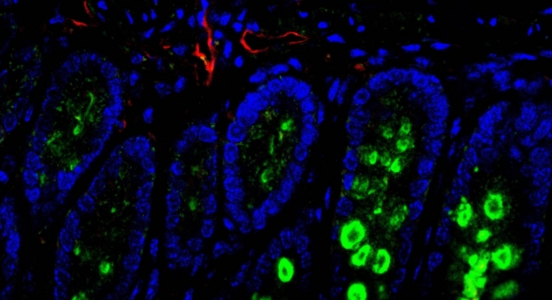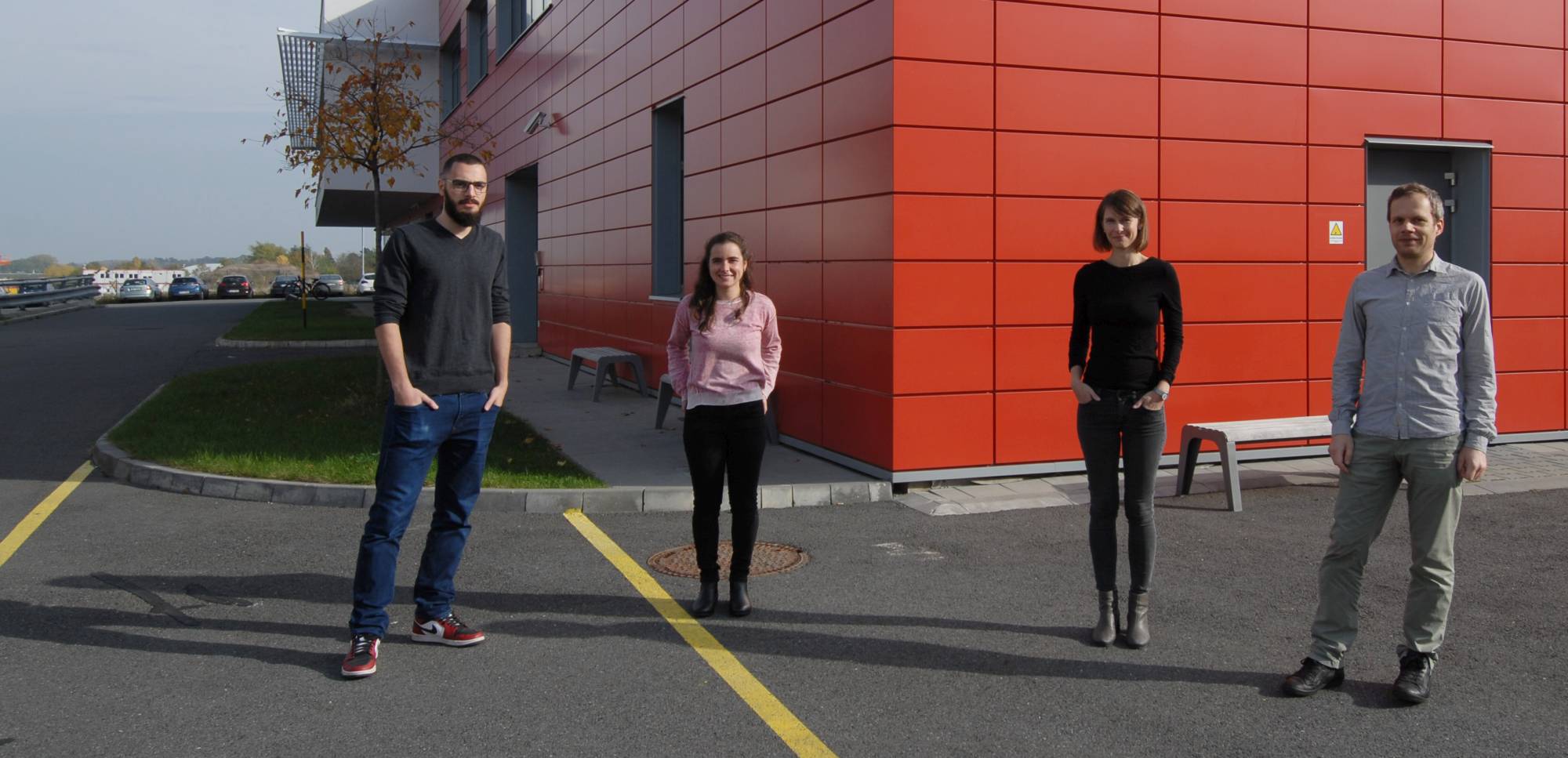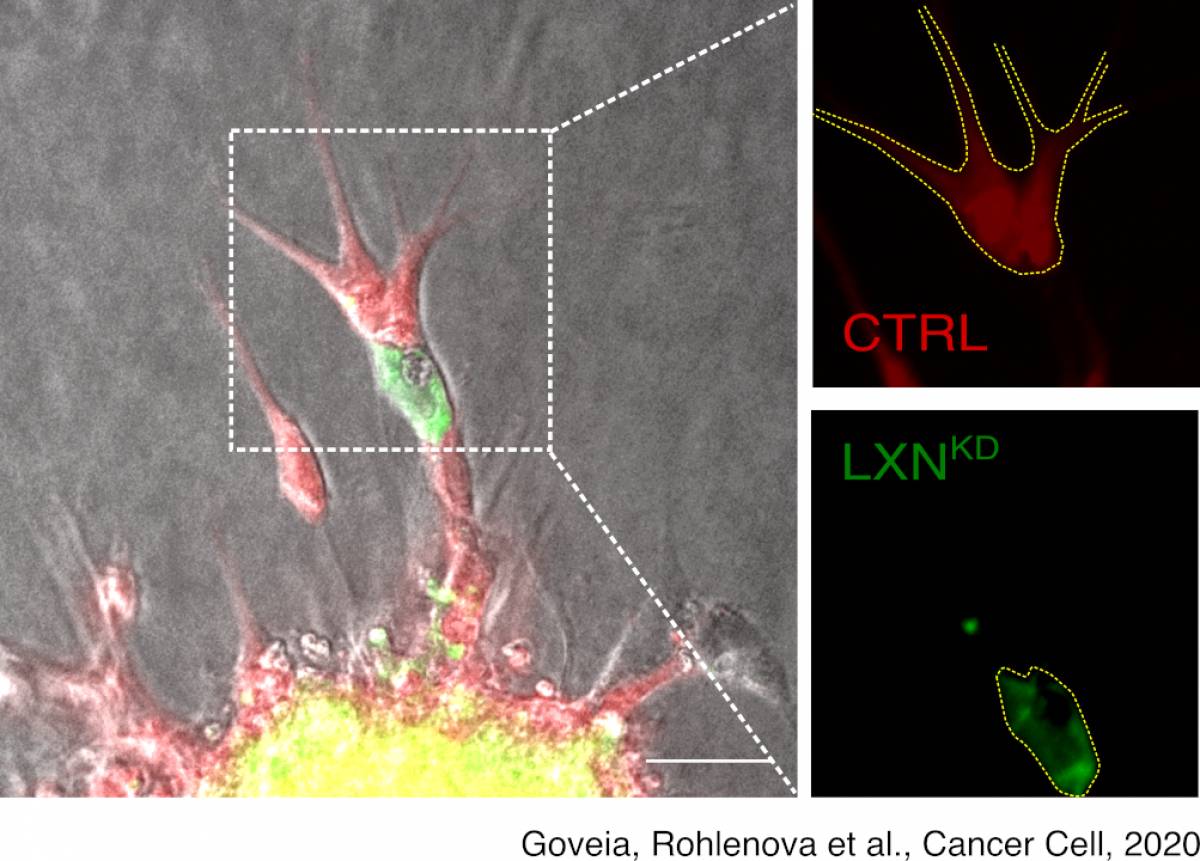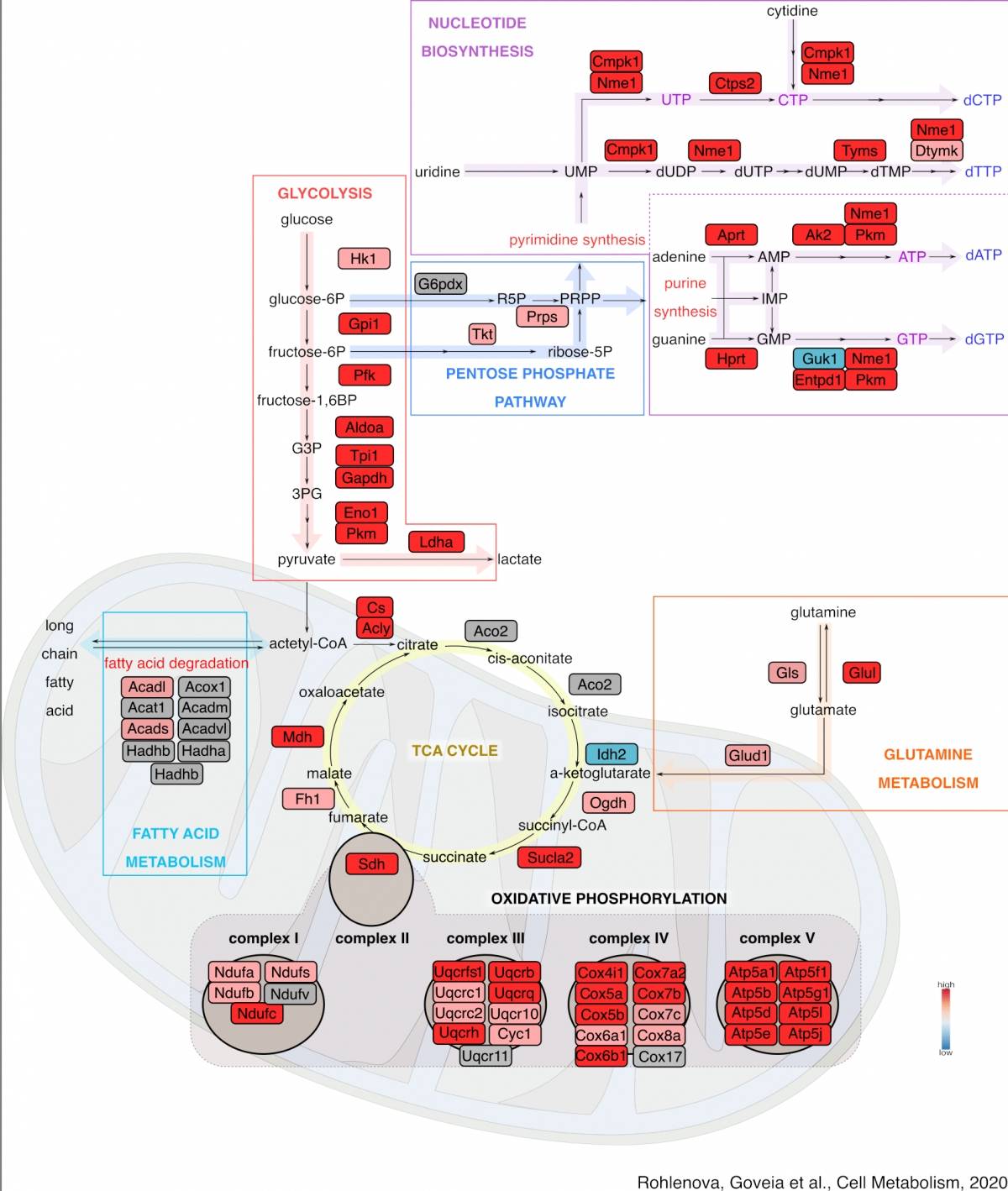The new laboratory of IBT CAS will focus on the metabolism of healthy tissue and tumor
Tue Nov 03 13:23:00 CET 2020
Tue Nov 03 13:23:00 CET 2020 | Tue Nov 03 13:23:00 CET 2020 - Tue Nov 03 13:23:00 CET 2020

In October 2020 a new research group started at the Institute of Biotechnology (IBT) of the Czech Academy of Sciences located at the BIOCEV center. Head of the group, Dr. Katerina Rohlenova, returned to the Czech Republic after a postdoctoral stay in the laboratory of Prof. Peter Carmeliet at the Center for Cancer Biology (VIB-KU Leuven) in Belgium, where she studied metabolism of cells that form blood vessels in tumors. At IBT Katerina teamed-up with Dr. Jakub Rohlena, a cancer metabolism expert, and together with two other colleagues, Ph.D. students Mirko Milosevic and Silvia Novais, will focus on intercellular metabolic crosstalk in healthy tissues and in tumors.
Healthy tissues as well as malignant tumors consist of multiple cell types that metabolically communicate with each other, e.g. one cell type produces metabolites that are then taken up by another cell type in the same tissue. This enables growth and survival in nutrient-poor environments.

"We think that metabolic crosstalk can limit the efficacy of metabolic interventions targeted at cancer cells. An example is anti-nucleotide therapy, which was established more than 70 years ago as one of the first approaches for treatment of cancer, but up to now it suffers from resistance and is rather toxic for healthy tissue. Our goal is to find out how cells in tissues trade metabolites, and if healthy tissues and tumors differ in their metabolic trading patterns. Such differences could be used to develop new therapeutic strategies. We will combine our expertise in metabolism and mouse models with single cell technologies, which I became familiar with during my postdoc," says Kateřina Rohlenová.

Complexity of tissues precludes the use of traditional techniques of metabolic research, using which the individual cell types cannot be studied in their natural environments. This hindered our understanding of metabolic interactions in the past. "We will now use single cell OMICS to map the crosstalk ‘one cell at a time’. This will allow us to study what was thought to be known from a unique angle with an unprecedented resolution. We believe that our research has a great potential for fundamental discoveries with high translational relevance," adds Kateřina.
"IBT/BIOCEV was the place of choice for our new research group, with the required instrumentation and expertise in single cell genomics and metabolic research in place, and with a state-of-the-art animal clinic in a building next door. Importantly, at IBT we also have a unique opportunity to further characterize and develop newly-identified therapeutic targets by combining the established methods of structural/protein biology and custom synthesis of specific inhibitors," adds Jakub Rohlena.
Website of Rohlena Lab - HERE
Title picture: Colon section in mouse with selective deletion of the TFAM gene in the endothelium (the inner lining of blood vessels). TFAM is stained green, endothelial cells are stained red. Nuclei are shown in blue. Such model allows us to study metabolic perturbation in endothelial cells in a context of whole tissue, and how these perturbations affect other cell types.

